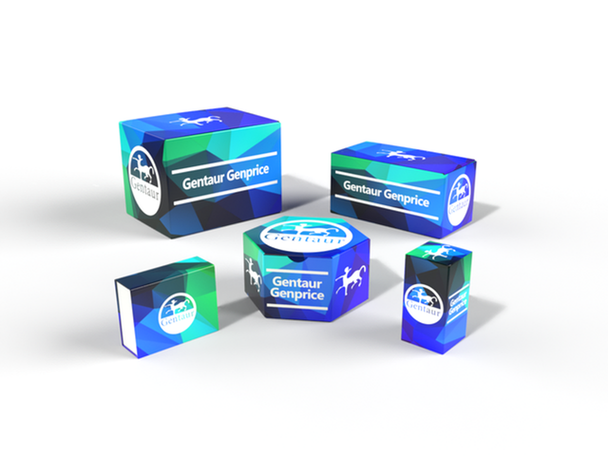Description
CASC5 Antibody | 14-798 | Gentaur UK, US & Europe Distribution
Host: Rabbit
Reactivity: Human, Rat
Homology: N/A
Immunogen: Recombinant fusion protein containing a sequence corresponding to amino acids 1-300 of human CASC5 (NP_733468.3) .
Research Area: Cancer, Cell Cycle, Stem Cell
Tested Application: WB, IHC, IF
Application: WB: 1:500 - 1:2000
IHC: 1:50 - 1:100
IF: 1:50 - 1:100
Specificiy: N/A
Positive Control 1: HepG2
Positive Control 2: U-87MG
Positive Control 3: HeLa
Positive Control 4: Jurkat
Positive Control 5: N/A
Positive Control 6: N/A
Molecular Weight: Observed: 300kDa
Validation: N/A
Isoform: N/A
Purification: Affinity purification
Clonality: Polyclonal
Clone: N/A
Isotype: IgG
Conjugate: Unconjugated
Physical State: Liquid
Buffer: PBS with 0.02% sodium azide, 50% glycerol, pH7.3.
Concentration: N/A
Storage Condition: Store at -20˚C. Avoid freeze / thaw cycles.
Alternate Name: AF15Q14, CASC5, CT29, D4MCPH4, PPP1R55, Spc7, hKNL-1, hSpc105, kinetochore scaffold 1, ALL1-fused gene from chromosome 15q14 protein, blinkin, bub-linking kinetochore protein, cancer susceptibility candidate 5, cancer susceptibility candidate gene 5 protein, cancer/testis antigen 29, kinetochore null 1 homolog, kinetochore-null protein 1, microcephaly, primary autosomal recessive 4, protein phosphatase 1, regulatory subunit 55
User Note: Optimal dilutions for each application to be determined by the researcher.
BACKGROUND: The protein encoded by this gene is a component of the multiprotein assembly that is required for creation of kinetochore-microtubule attachments and chromosome segregation. The encoded protein functions as a scaffold for proteins that influence the spindle assembly checkpoint during the eukaryotic cell cycle and it interacts with at least five different kinetochore proteins and two checkpoint kinases. In adults, this gene is predominantly expressed in normal testes, various cancer cell lines and primary tumors from other tissues and is ubiquitously expressed in fetal tissues. This gene was originally identified as a fusion partner with the mixed-lineage leukemia (MLL) gene in t (11;15) (q23;q14) . Mutations in this gene cause autosomal recessive primary microcephaly-4 (MCPH4) . Alternative splicing results in multiple transcript variants encoding different isoforms. Additional splice variants have been described but their biological validity has not been confirmed.






